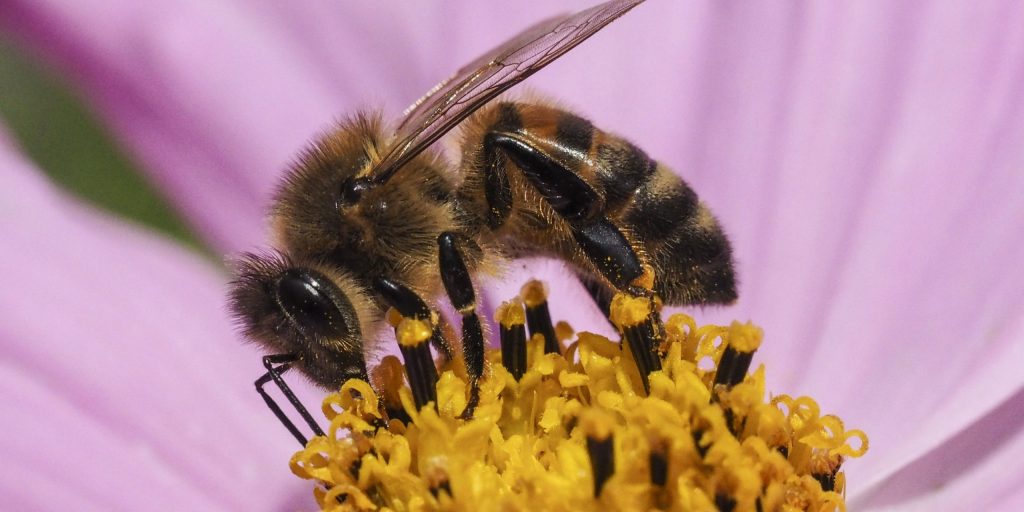EU governments today passed a total ban on bee-harming neonicotinoid pesticides on outdoor crops.
Commenting on the vote, Sandra Bell, bee campaigner for Friends of the Earth Europe said:
“This comprehensive neonicotinoid ban, covering all outdoor crops, is a tremendous victory for our bees and the wider environment.
“The European Commission must now focus on developing a strong pollinator initiative that boosts bee-friendly habitat and helps farmers cut pesticide-use.
Many farmers are already successfully growing crops without neonicotinoids. But too many other damaging chemicals and practices are still used. Farmers need more support from the European Commission and national governments to farm with nature – not against it.”
Friends of the Earth Europe is calling for an overhaul of the EU’s food and farming system to make it less dependent on pesticides, via a concrete pollinator strategy and a radical change to the Common Agricultural Policy (CAP). The European Commission is expected to issue its proposals for CAP reform on May 31.
Neonicotinoids, manufactured by companies like Bayer and Syngenta, were partially banned from use in the EU in 2013 on flowering crops like oilseed rape, in order to protect bees. However, on growing evidence of their harm to bees, the European Commission proposed the three neonicotinoid pesticides subject to these partial restrictions should be completely banned on outdoor crops. New evidence has shown that, after being applied on fields, neonicotinoids persist in the environment for many years, and have even been found drifting into water and wildflowers next to crops.
Predictions by the neonics manufactures that the existing restrictions would result in farmers being unable to grow crops such as oilseed rape have proved unfounded, with high yields being achieved across the EU since the ban – showing these chemicals are not necessary.







